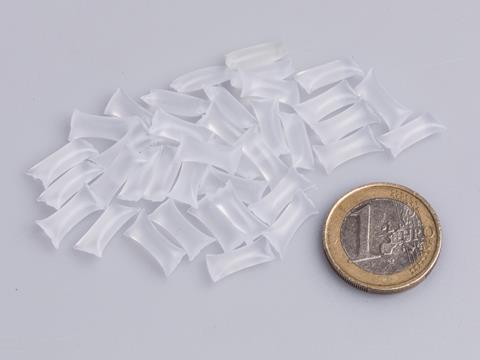
A new innovation from Henkel Adhesive Technologies seeks to reduce reliance on single-use plastic wrap and packaging materials when transporting goods on pallets.
Palletizing is an essential part of modern supply chains, but often requires large quantities of plastic films, intermediate layers and anti-slip mats to stabilize and secure stacked goods. This is the issue that Henkel’s Technomelt Supra 7220 PS Easyflow aims to address.
The company claims that its new hot melt adhesive significantly cuts or fully dispenses with the need for film and pallet stretch wrap. A hot melt adhesive joins outer packages with each other via an automated process.
“At Henkel, we recognize that sustainability is an urgent issue for the packaging industry and for wider society,” comments Stephan Hähnert, business development manager of sustainability for consumer goods adhesives.
“With solutions like the Technomelt Supra 7220 PS Easyflow we can help our customers meet current sustainability standards and support the drive to reduce plastic waste. At the same time, we can help make production and logistics processes more efficient and cost-effective.”
As well as reducing usage – and costs – of plastic films and eliminating the use of anti-slip mats and the intermediate layers required for palletization, the solution removes the additional costs and environmental impact of disposing of materials.
In terms of safety for production line operators, the solution eliminates manual handling of hot melt adhesive and possible exposure to high temperatures. The closed auto-feeding system, which allows for distance feeding for storage away from the production line for additional flexibility, also seeks to support a cleaner and safer working environment.
Meanwhile, the company says that by avoiding contaminants in the system, the solution reduces equipment maintenance demands. In addition, process performance and efficiency reportedly increase.
Created for all production lines, the non-sticky mini pillows can freely flow to allow the auto-feeding system from the adhesive side. According to Henkel, this provides a steady melt-on-demand supply into the melters without interruption or temperature fluctuations that can impact performance.













